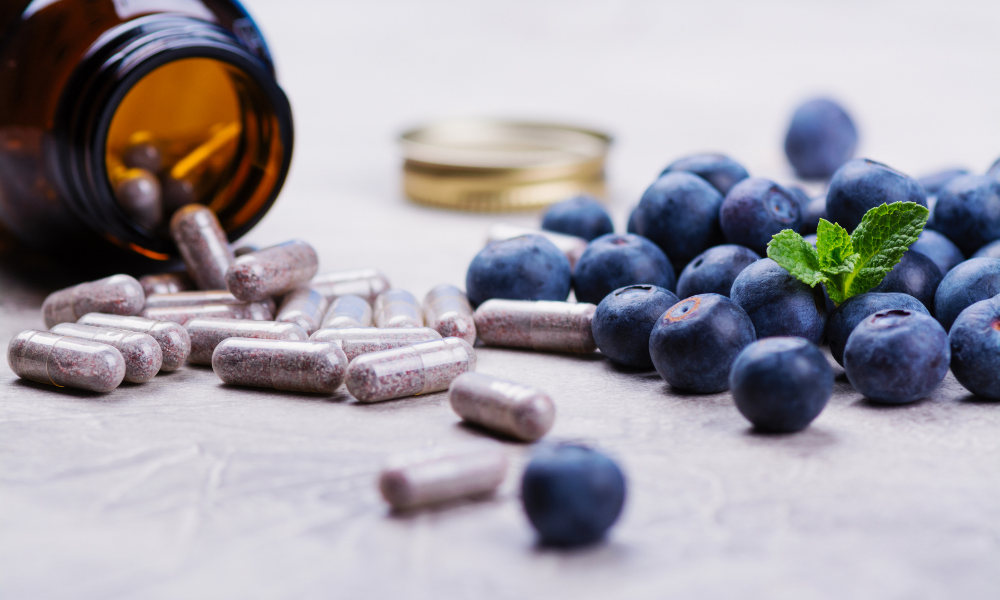For couples who want to have children, the diagnosis of infertility feels like a death blow. But there is hope, because nowadays there are various options available to still have children. In this article, we explain what you can do to increase your fertility.
Infertility is not always infertility
There are precise definitions of when someone is considered infertile. In its fact sheet, the World Health Organization (WHO) states that a couple who does not become pregnant after 12 months of regular and unprotected sex at the time of ovulation is considered infertile.
In fact, in 40 percent of these cases the cause lies with the woman. In 40 percent of cases the cause lies with the man, and in 20 percent of cases the cause lies with both partners. From a medical point of view, a distinction is made between primary and secondary sterility.
Primary means that a woman has never become pregnant - despite unprotected sex - or the man has never fathered a child. Secondary sterility is when no second pregnancy occurs after a previous pregnancy.
According to the Federal Ministry for Family Affairs, Senior Citizens, Women and Youth (BMFSFJ), “almost one in ten couples in Germany between the ages of 25 and 59 are involuntarily childless.”
But what are the causes for both sexes?
IT'S WORTH READING!
AT THE END OF THE ARTICLE WE HAVE PROVIDED YOU A VOUCHER CODE.
The possible influences on female fertility
Female sterility can have various causes. Only a doctor can determine exactly which circumstances apply in each individual case. In general, however, the following factors have a major influence on fertility:
- Age. From the mid-30s onwards, fertility begins to decline naturally.
- Nicotine addiction increases the risk of infertility (not only for women) and may undermine the success of fertility treatment.
- A Danish cohort study from 2016 showed that excessive alcohol consumption negatively affects female fertility.
- Diet. A lack of iron , zinc , vitamin B12 and folic acid can reduce fertility. Women who follow a strict vegan diet in particular should ensure they have an adequate supply of these nutrients.
- If the ovaries are not functioning properly, as occurs in polycystic ovary syndrome (PCOS), ovulation may not occur. This makes natural pregnancy almost impossible. A Swedish study from 2011 seems to confirm this.
In addition to these factors, obesity, poor egg quality or drug use can also have a negative impact on female fertility.

The possible influences on male fertility
A man's fertility depends primarily on the quality of his sperm. If one of the following three circumstances applies, fertilization is almost impossible:
- Low sperm count. If the number of sperm in an ejaculation is less than 15 million, conception is very unlikely to occur.
- Low sperm motility. The motility of sperm is a crucial factor in fertilizing the egg. If they do not swim well and do not reach the egg, fertilization does not occur.
- Abnormal sperm. If the sperm have an unusual shape (morphology) that makes it difficult for them to move, fertilization of the egg becomes almost impossible.
But what influences are responsible for sperm quality?
- Age. From the age of 40, male fertility begins to decline.
- Excessive alcohol consumption could reduce male fertility. Moderator Alcohol consumption of no more than 250 grams per week, however, has no negative impact on sperm quality. A study with 8,000 participants even showed higher testosterone levels in men who drank moderately than in those who hardly drank any alcohol.
- Overheated testicles. Often unnoticed, the ambient temperature affects the testicles. Reasons can be tight clothing, working in hot environments, sauna visits or undescended testicles.
- Anabolic steroids. Long-term use of this substance, which is so popular among strength athletes and bodybuilders, can massively reduce the number and mobility of sperm.
In addition, hormonal imbalance, radiation or psychological stress can have an impact on male fertility.
Now that we have seen which factors can influence male and female fertility, the question arises: What can you do to increase your own fertility?

Ways and means to increase fertility
Relax!
A 2018 study shows that stress and fertility are linked.
Trying to get pregnant can put a lot of pressure on a couple. This naturally increases the stress level, but on the other hand means that the chances of getting pregnant decrease. A vicious circle?
No. This realization has something positive about it, especially for couples whose infertility is stress-related. In some cases, simple relaxation techniques, reducing stress or a relaxing vacation can help to increase the chances of conception.
Pay attention to fatty acids
Healthy fats are important for physical well-being in general and for fertility in particular.
The situation is different with trans fats: These unsaturated fatty acids, which are created during the industrial hardening of originally healthy vegetable oil, are associated with an increased risk of ovarian infertility due to their negative effects on insulin sensitivity.
So keep an eye on your daily fat intake.
Maintain a healthy weight
Did you know that your weight is one of the most influential factors when it comes to your fertility? An article published in the journal Frontiers in Endocrinology shows that women with a BMI over 25 often have difficulty getting pregnant.
The same applies to women with a BMI below 19: they are similarly likely to suffer from infertility.
A study published in 2018 in the Journal of Endocrinology establishes a clear link between obesity, impaired egg development, lack of ovulation and menstrual irregularities.
Pay attention to your nutrients
Vitamins and minerals such as zinc and B vitamins play a particularly important role in conception and pregnancy. Women who are unable to conceive often have a deficiency in important nutrients such as selenium , vitamins B6, B12 and vitamin D , as well as folic acid.
The German Nutrition Society, for example, recommends taking 400 μg of folic acid per day in the form of a dietary supplement for women who want to become pregnant.
Because a deficiency in folic acid during pregnancy can potentially lead to malformations in the developing embryo, this nutrient is often found at the top of the recommended nutritional list for pregnant women.
Fight oxidative stress
Antioxidants like zinc mentioned above can improve fertility in both men and women. They do this by fighting free radicals in the body that could otherwise damage eggs or sperm.
You can find antioxidants in foods such as fruits, vegetables, nuts and grains, which are packed with vitamins C and E, folic acid, beta-carotene and lutein, for example.
Of course, regardless of whether you want to have children or not, it always makes sense to include more of these healthy nutrients and foods in your daily diet.
Keep moving
We don't want to go into the whole litany of how healthy exercise is for you, don't worry. We all know that's true. But moderate exercise also has a big impact on your fertility, did you know that?
This is especially true if you are overweight, as a 2017 study showed. In particular, women whose infertility is due to PCOS (polycystic ovary syndrome) or obesity experienced increased fertility with decreasing body weight.
Of course, on the other hand, you shouldn't overdo it so that you don't put yourself under stress when it comes to sport and exercise. 30 to 60 minutes a day is okay, but more than 60 minutes can have a negative effect on your fertility.

Maintain a healthy gut
Admittedly, when it comes to fertility, the intestines are not the first thing that comes to mind. But they actually have a huge impact on our health. Did you know, for example, that the intestinal flora influences your hormone production and therefore has an impact on your fertility?
For example, if there is an imbalance in the intestine - a so-called dysbiosis - the release of an enzyme that plays a role in estrogen metabolism can be disrupted. The possible consequences: obesity, PCOS or metabolic syndrome. This is suggested by the results of a study published in the Journal of Clinical Biochemistry and Nutrition .
For the sake of your intestinal health, you should avoid sugar, processed foods, white flour and bad fats.
Conclusion: Infertility is not the end
If you are diagnosed with infertility, your dream of having your own child does not have to be over. Positive changes to your lifestyle, combined with less stress and an improved diet, can help in many cases.
When in doubt, dietary supplements can help compensate for critical nutrient deficiencies and increase fertility.
AS PROMISED, YOU WILL RECEIVE A 10% VOUCHER ON OUR Zinc , Selenium tablets , Liquid Vitamin D , Vitamin D capsules , Vitamin C and Vitamin B complex forte .
SIMPLY COPY THE CODE WUNSCH+V10 AND ENTER IT AT CHECKOUT.
Click here to SHOP
[1] https://www.who.int/news-room/fact-sheets/detail/infertility
[2] https://www.ncbi.nlm.nih.gov/pmc/articles/PMC4691969/
[3] https://www.ncbi.nlm.nih.gov/pmc/articles/PMC4691969/
[4] https://www.acog.org/womens-health/faqs/having-a-baby-after-age-35-how-aging-affects-fertility-and-pregnancy
[5] https://www.bmj.com/content/354/bmj.i4262
[6] https://pubmed.ncbi.nlm.nih.gov/28661897/
[7] https://www.ncbi.nlm.nih.gov/pmc/articles/PMC4642490/
[8] https://www.ncbi.nlm.nih.gov/pmc/articles/PMC3017326/
[9] https://www.ncbi.nlm.nih.gov/pmc/articles/PMC4691969/
[10] https://www.ncbi.nlm.nih.gov/pmc/articles/PMC3255409/
[11] https://pubmed.ncbi.nlm.nih.gov/21682835/
[12] https://pubmed.ncbi.nlm.nih.gov/24054934/
[13] https://www.ncbi.nlm.nih.gov/pmc/articles/PMC6016043/
[14] https://www.sciencedirect.com/science/article/abs/pii/S1090513806000274
[15] https://pubmed.ncbi.nlm.nih.gov/29946210/
[16] https://hms.harvard.edu/news/trans-fats-may-raise-risk-infertility
[17] https://pubmed.ncbi.nlm.nih.gov/29383942/
[18] https://www.frontiersin.org/articles/10.3389/fendo.2019.00346/full
[19] https://joe.bioscientifica.com/view/journals/joe/239/3/JOE-18-0199.xml
[20] https://pubmed.ncbi.nlm.nih.gov/17099205/
[21] https://pubmed.ncbi.nlm.nih.gov/31040736/
[22] https://pubmed.ncbi.nlm.nih.gov/26081493/
[23] https://www.dge.de/ernaehrungspraxis/bevoelkerungsgruppen/schwangere-stillende/handlungsommen-zur-ernaehrung-in-der-schwangerschaft/
[24] https://www.ncbi.nlm.nih.gov/pmc/articles/PMC2366795/
[25] https://www.ncbi.nlm.nih.gov/pmc/articles/PMC6480978/
[26] https://academic.oup.com/biolreprod/article/87/4/101,%201-8/2514205
[27] https://www.ncbi.nlm.nih.gov/pmc/articles/PMC2744625/
[28] https://www.nature.com/articles/1602904?utm_medium=affiliate&utm_source=commission_junction&utm_campaign=3_nsn6445_deeplink_PID100090071&utm_content=deeplink
[29] https://pubmed.ncbi.nlm.nih.gov/28961722/
[30] https://pubmed.ncbi.nlm.nih.gov/28035585/
[31] https://pubmed.ncbi.nlm.nih.gov/31577927/
[32] https://pubmed.ncbi.nlm.nih.gov/31636122/
[33] https://pubmed.ncbi.nlm.nih.gov/28532414/
[34] https://www.pnas.org/content/116/1/233

















